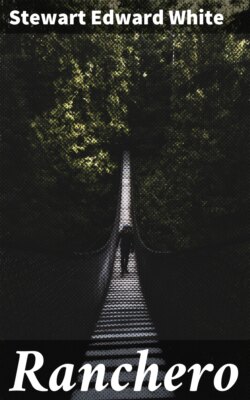Читать книгу Ranchero - Stewart Edward White - Страница 6
На сайте Литреса книга снята с продажи.
Preface
ОглавлениеTable of Contents
I do not hold with prefaces as a usual thing. But apparently this volume needs one. Its serial publication brought me many letters of advice and criticism, most of it friendly, a little of it scornful. Some of it was fully justified, and the text has been changed to accord with it.
The fragments of Spanish have particularly annoyed a few. The students of the pure Castilian especially have taken the trouble to point out to me lapses from correct form. Men who have lived long in Mexico or the South American republics also have written themselves as puzzled over what most considered as ignorance. This is not surprising. The Spanish-Californian spoke a dialect. It amused me to try, as best I could, to follow this dialect. The result is, naturally, not pure Castilian; neither is it the brand of Spanish spoken in Mexico or the Argentine. But, in the main, if not entirely accurate, it at least conveys the flavor of difference. In serial publication some minor errors, even in dialect, got by. Such as haciendado; which should, of course, be hacendado. These have been corrected.
Perhaps it would be amusing to quote a sample or so of the forms to which my correspondents have objected. There is the word palomino for the “silver” horse. Of course I know the word means literally “little dove.” Of course I know that palomilla means white horse in good Spanish. But equally I know that in California to this day palomino is the word for the horse. Likewise valecito casaros as meaning an impromptu house dance. Undoubtedly bailecito is the word intended; but valecito was the word used. Another, and curious, example was the greeting which ended “mar a Dios.” This aroused the especial indignation of one correspondent, who rather heatedly and impolitely pointed out that this line, as written, was “drivel” meaning “sea to God,” and that the correct termination should be “madre de Dios.” To be sure! But in the slurring speech of the Indian and vaquero the phrase became distorted and abbreviated and conventionalized to just that. It was one of my best touches; but it missed fire! Listen to the conversation of any youngsters for parallels of such abbreviated distortions in our own language. Incidentally this same correspondent informs me that my “proper names are just bilge.” That is sad; for without exception they were borne by our best Californian families. There occur also a number of coined words not to be found in the dictionary—rifleros, for example. The reader will have to take my word for it that they were used. Or others whose derivation is obscure. I have had to spell these phonetically, as they sounded to me. Morale is an example. Possibly it would be better to spell it morál, with the accent; or even morral. But morral is in the Spanish dictionary and means a nose-bag or a game bag, while my morale was a long lash formed by the joining and extension of the bridle reins.
The list needs no extension. I merely want to make the point that, whatever its deficiencies, the Spanish used in this story is no mere smattering of ignorant phrases in a try at atmosphere. The attempt at dialect may not have been successful; but its general endorsement by my Californian friends might be considered significant.
Some of my correspondents shake a good-natured head over some of the feats of horsemanship, or roping, or the like, described as performed by Ramón and his friends. I sympathize with them. “I have seen some very remarkable feats of horsemanship,” one writes, “but I have never seen, and neither have you, a horseman clear any sort of an obstacle balancing a tray full of filled wineglasses without spilling a drop.” He is right; I have never seen it done. Nevertheless, the fact is recorded by apparently reliable eyewitnesses. Indeed, such things do not belong in serious fiction unless they are true. It is too easy to invent them. Therefore I have taken especial pains to describe nothing of the sort unless it is on reliable record, or unless I have myself witnessed it.
In conclusion I wish to state what should be a self-evident fact. Naturally, I have read extensively in all available sources, and have borrowed as I needed. In some instances I have followed closely the originals; notably the bear fight on page 236, from Davis, Seventy-Five Years in California. I am grateful; but detailed bibliographies seem out of place in a work of fiction.
